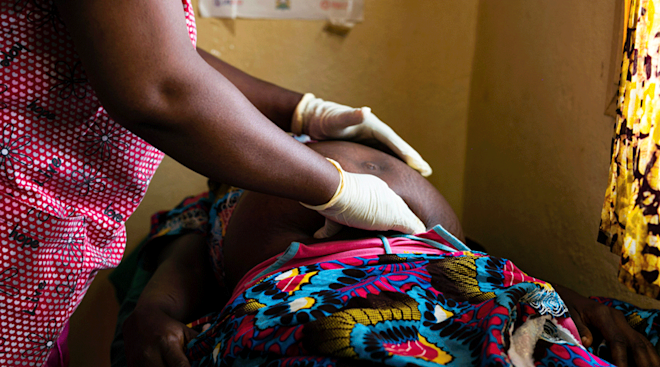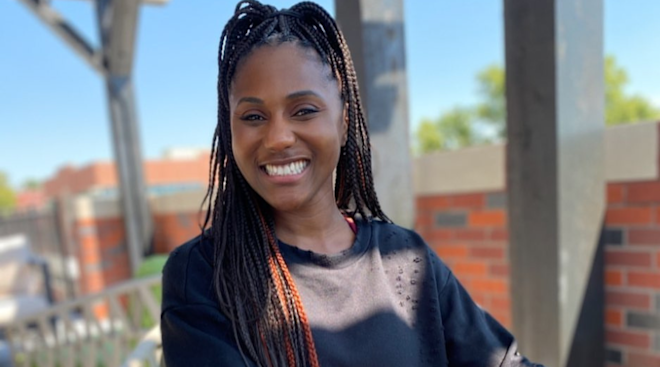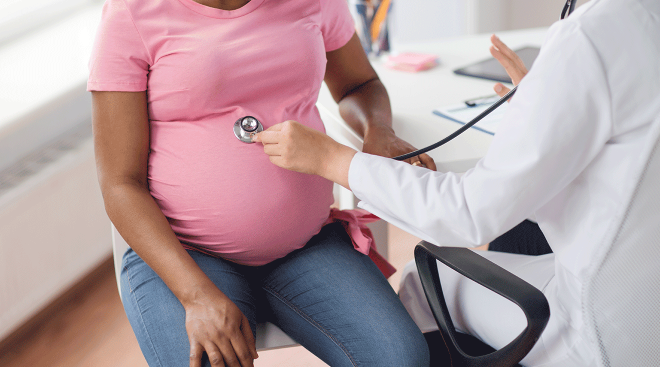Maternal Cardiac Deaths Are on the Rise, Especially for Black Moms
In the months leading up to birth, conversations often center around baby gear, birth plans and nursery décor. And while those things absolutely matter—we love talking about them here—there’s one topic that deserves just as much attention, if not more: heart health.
A new study to be presented at the American College of Cardiology’s Annual Scientific Session found that cardiovascular disease (CVD) isn’t just the leading cause of maternal death—it’s becoming increasingly common. Between 1999 and 2022, maternal deaths due to cardiac complications more than doubled, with over 600 women dying during pregnancy or within the year after giving birth in 2022 alone.
By analyzing national mortality data, researchers at Rutgers New Jersey Medical School found the age-adjusted mortality rate (AAMR) for CVD-related maternal deaths rose from 3.62 to 9.08 deaths per 1 million women of reproductive age over the study period. The most common causes were serious heart problems that can develop during or after pregnancy, dangerously high blood pressure, and blood clots that can block blood flow to the lungs or brain.
Nine deaths per million might not sound like much at first—but when you consider there are around 64 million women of reproductive age in the U.S., it adds up fast. That rate translates to more than 500 maternal deaths each year due to heart-related pregnancy complications. And that’s not just a number—those are hundreds of families losing a mother, a partner, a daughter.
Even more troubling is how unevenly this crisis affects moms across the country. Black women were nearly three times more likely to die from heart-related pregnancy complications than White women. Between 2018 and 2022, nearly 22 out of every 1 million Black women of childbearing age died, compared to just over 7 White women. Where you live matters too—moms in the South had the highest rates of these deaths (12.14), more than double the rates in the Western US (5.41).
So what’s behind the rise? According to the study’s authors, the increase reflects a combination of factors: rising rates of hypertension, diabetes and obesity—all of which increase cardiovascular risk and complicate pregnancy—as well as systemic issues, including limited access to quality prenatal and postpartum care, particularly in Southern states.
While there’s no single cause, one thing is clear: many of these deaths are preventable.
“The United States is supposed to be a global leader in advancing health and medicine, and the fact that we still have pregnant women who are dying—often because of preventable causes—should sound alarm bells,” said Mohammad Ahabab Hossain, MD, a resident physician at Rutgers New Jersey Medical School and lead author of the study. “The fact that there are disparities based on race means we need to pay better attention to more vulnerable populations, specifically Black women.” The researchers stressed the importance of earlier screening, preconception counseling and better referrals to high-risk OB care for patients with known cardiovascular risks.
While addressing and fixing systemic barriers, implicit bias and a fractured healthcare system won’t happen overnight, moms-to-be can still take steps to protect their heart health now. Tara Robinson, founder of The Black Heart Association, encourages expecting parents to advocate for their own care.
“Get your lipid levels, cholesterol and other key health indicators checked. I also recommend getting your Lipoprotein A tested, a calcium scoring done and B-type natriuretic peptide (BNP) to check for potential heart failure risks. A full hormonal panel is also important to track your baseline levels before pregnancy,” Robinson told The Bump in a recent interview. “Once you’re pregnant, it’s crucial to have a comparison point, so we can better understand what’s changing. I’d even argue for a cardiovascular check the minute you find out you’re pregnant. Doctors should be part of that collective care right away, especially considering the high mortality rate. If we can get ahead of it, we should.”
“We need you here. It’s that simple,” Robinson adds. “So, even when you don’t understand what’s going on with your body, fight for your health because you need to be here to see your kids grow. Live to fight another day.”
Please note: The Bump and the materials and information it contains are not intended to, and do not constitute, medical or other health advice or diagnosis and should not be used as such. You should always consult with a qualified physician or health professional about your specific circumstances.
Navigate forward to interact with the calendar and select a date. Press the question mark key to get the keyboard shortcuts for changing dates.





















































